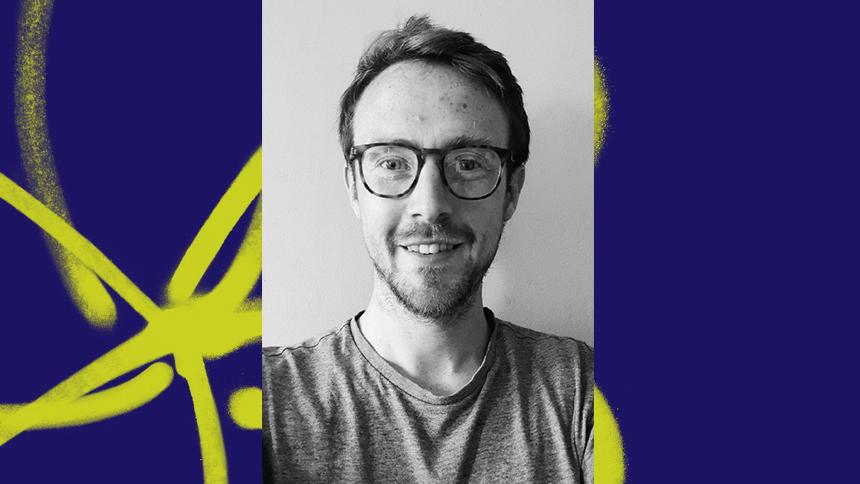Q&A: Kieren Egan on researching healthy ageing, dementia and caregivers
Meet Kieren Egan, Senior Research Fellow at the University of Strathclyde.
Favourite things?
- Film – Interstellar. Hans Zimmer soundtrack, Dylan Thomas poetry and Michael Caine. What’s not to like? 169 minutes of pure escapism!
- Way to spend time – Long walks with the dog (although admittedly not so much cleaning the dog afterwards).
- Memory – I think the season where my football team, St Johnstone, won the League Cup and Scottish Cup can’t be bettered (2020–2021).
Why dementia research?
When I was younger, my father always encouraged me to ask difficult questions and to find something ‘bigger than me’ to focus on in a career. So, the inner workings of the brain fitted this bill nicely.

After meeting some incredible clinicians like my PhD supervisor, Professor Malcolm MacLeod at the University of Edinburgh, I built up basic skills in research.
I really got a feel for the need for research that impacts on dementia. Since then, I’ve worked on projects relating to healthy ageing, dementia and caregivers.
How has Alzheimer’s Society supported your work?
Alzheimer’s Society has been an exceptional help to me, particularly as I started out in more independent research, supporting me with a travel fellowship to work with colleagues in the Netherlands on the subject of social isolation in dementia.
They have offered training, events and support the whole way through – I’m really looking forward to seeing where this journey goes next!
What are you currently working on?
I’m currently working on a variety of projects in terms of dementia, caregivers and new pathways in health and social care.
In particular, we’re recruiting for digital health studies just now for caregivers of people with dementia. If you follow me on Twitter (@Drkjegan), I’ll no doubt be sharing details there.
What difference do you hope this will make?
I’d like to see digital devices, such as smartphones and wearables (like smartwatches and smartglasses), do more for people with dementia, caregivers and people looking after their brain health.
This might mean a better quality of life, regular social interactions for those who live alone, and people feeling more supported and confident about managing their health, whatever their situation.
This will take time, but I think if we work collaboratively, build up ideas with strong evidence and co-design them authentically with people affected, then we will succeed.
In what direction would you like to take your research in future?
I started my PhD in 2009 and I can safely say I have never been more excited about the possibilities ahead for dementia research and implementation. Just look at our understanding of brain health and breakthrough drug therapy news.
My plans are to keep extending my horizons in terms of societal impact and representation – research and implementation needs to be designed with, and delivered for, everyone.
How can you help?
£16 could support an hour of a PhD student’s research in the fight
Donate against dementia.

